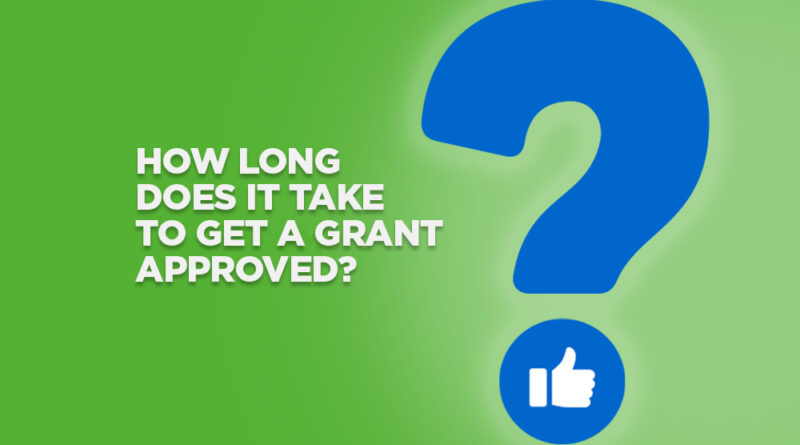How Long Does It Take to Get a Grant Approved?
You’ve done the hard work. You found a grant and submitted your proposal! But how long will it take until you find out if you’ve been approved?
The funder’s guidelines will usually indicate the funding distribution schedule. Since each funding source is different, the time from grant application submission until notification will vary.
Each foundation has its own timeline and can vary anywhere from 30 days to 18 months. Meanwhile, federal and state government funding generally lists the processing times publicly on their website.
The chance of winning a grant can vary depending on how many people apply and the caliber of your proposal. These odds do increase with the more grants you apply for, so don’t expect to put all your eggs in one basket.
Remember, while grants are helpful, they should not be your first or only source of income. In the meantime, many grant seekers also create a crowdfunding campaign to assist in raising immediate funds for their cause.
If your grant proposal was rejected, there are still options available.
Think of rejection as an opportunity and not a reason to give up. There are five steps you can immediately take to help you recover. This can even forge a relationship with the organization moving forward.
1. Ask for Feedback
Call the foundation, not to complain but to get more information. Speak with a program officer and ask:
1. Could we have done something differently in our proposal?
2. May we resubmit the proposal for the next funding cycle?
3. Do you know of any other foundations that might be interested in our project?
2. Be Gracious
Write a gracious letter and thank them for their time, their review of your proposal, and the opportunity to work with them. Remember to never waste an opportunity to develop a relationship with a funding source. It’s always best to build a bridge rather than burn one in the long run.
3. Review Your Application
Review your application and make sure you didn’t make any mistakes. Make sure you’re not courting rejection out of ignorance or oversight. If you submit a poorly written proposal, your application will be unlikely to be funded. Even if you have met all of the application guidelines and prepared a compliant proposal, your application may not be shortlisted for further review due to making a simple error.
Did you follow the directions for your application? One mistake could knock your proposal out before it even reaches the desk of the deciding program officer. In the future, consider hiring a professional grant writer for help with the development and overall polishing of your grant application.
4. Network for a Future Approach
Did you reach out and network with the foundation before you applied? Find a way to get to know someone there. Find a board member who knows someone at the foundation and have them approach someone about the grant. You can also make phone calls and ask questions to test their interest in your project. Even if they don’t fund your proposal this time around, building a relationship can help with future applications.
5. Is Your Organization Ready?
If your organization is new to the grants game, you need to be in a position where you can apply for grants. Do you have a good track record? Are you well known in your community? Are you fiscally capable? If you’ve submitted three or more grant proposals and haven’t won at least one, you may want to hire a grant writer. They are experienced in the grant field and can help open up doors for your organization.
Remember that a grant is not a solution to your financial problems. No foundation wants to help bail you out. They want to partner with organizations that are financially stable and sustainable.
Summary
On average, it can take a few months to discover if your application has been awarded after you’ve submitted your application. This can be longer, depending on the funding source. However, in most cases, a distribution timeline can be listed in their guidelines. However, if your proposal was rejected, this could be an opportunity to reapply at a later date. Any rejection, taken well, can lead to much better grant-seeking in the future.
Additionally, you may want to assess the possibility of hiring a grant writer to help increase your chances of being awarded a grant. Furthermore, you can consider other avenues to raise money in the meantime, such as crowdfunding campaigns and fundraisers. Alternatively, if you’re seeking bailouts to financial problems, we recommend researching loans rather than grants.
While there is no guarantee of being awarded a grant, there is no limit on how many grants you can apply for. New grants become available each day, so check grant databases on a regular basis to stay updated on the newest funding opportunities available!

